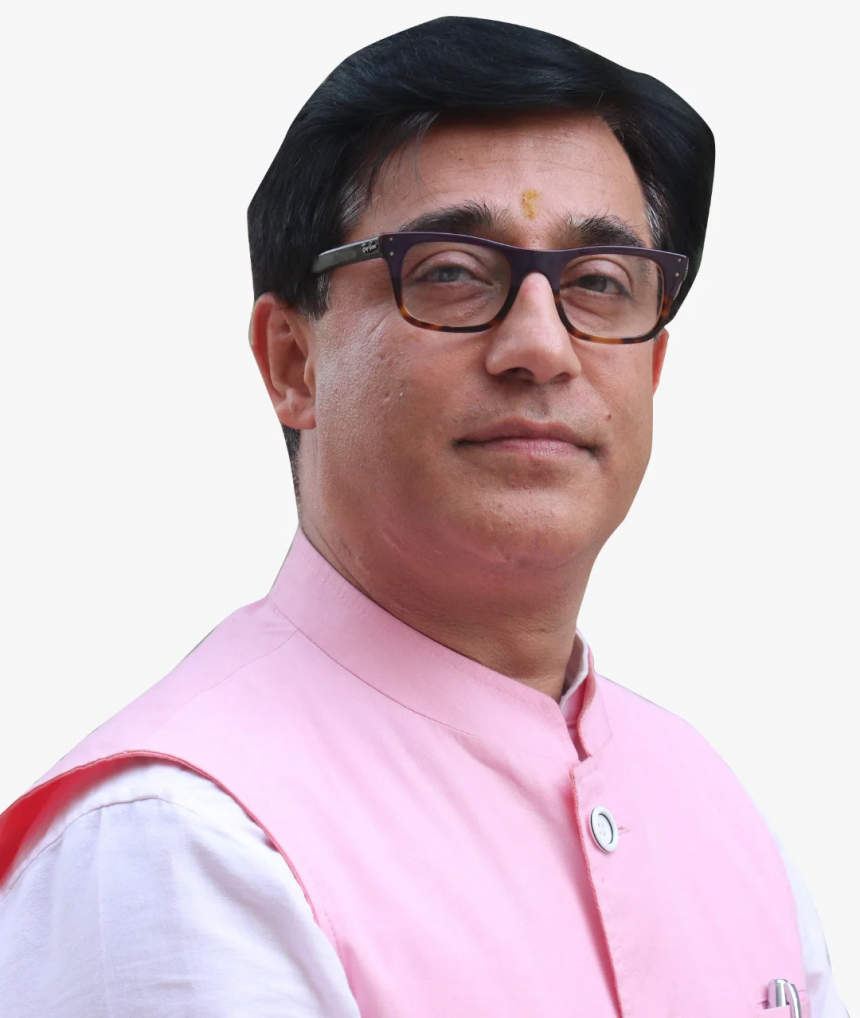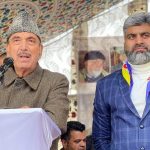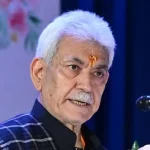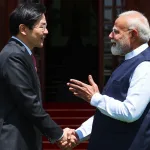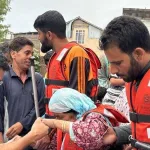The Kashmiri Pandit community has long been at the heart of India’s cultural and intellectual heritage. However, their forced displacement in 1990, triggered by rising insurgency, targeted killings akin to Genocide and ethnic violence, marked the beginning of a challenging chapter. The exodus, ethnic cleansing, and genocide of Kashmiri Pandits have not only devastated the Pandit community but also significantly impacting majority community by eroding their foundational values, traditions, and educational heritage that was once nurtured by Kashmiri Pandit teachers.
The displacement of Kashmiri Pandits disrupted the harmonious social balance the community historically maintained and has inflicted a profound impact on the broader societal fabric of Kashmir. The forced migration has led to a gradual decay of millennia-old cultural diversity, pluralism, and the essence of Koshurut—the spirit of inclusiveness and coexistence. Furthermore, it has weakened India’s inclusive ethos and posed a significant threat to the integrity of its cultural and national fabric, undermining the traditional Indian knowledge system that once flourished through the contributions of the Kashmiri Pandit community.
Moreover, the loss of this integral community highlights broader concerns about social justice, human rights, and India’s moral responsibility to protect its minorities. A continued delay in their dignified return and integration not only erodes pluralistic values but also serves as a stark reminder of unresolved historical injustices, threatening national unity and the credibility of India’s commitment to inclusivity and secularism
The recently concluded and released, Kashmiri Pandits Post-Exile Culture Survey, jointly conducted by Shri Vishwakarma Skill University (SVSU) and Whetstone International Networking (WIN), is the most comprehensive and scientific exploration of this community’s experiences to date. This data-driven report sheds light on their struggles, resilience, and hopes for the future, while systematically debunking false narratives propagated by vested interests.
Challenging Misleading Narratives
For years, claims have circulated that Kashmiri Pandits have severed ties with their homeland by selling their properties and losing interest in returning. However, the survey paints a starkly different picture:
- Property Ownership: 68% of Kashmiri Pandits still own ancestral properties in Kashmir.
- Preservation of Homes: Nearly half (48.6%) of these individuals have refused to sell their properties despite decades of displacement and financial hardships.
- Aspirations to Return: An overwhelming 66.6% of respondents expressed hope and aspiration about returning to Kashmir, with security and rehabilitation identified as the primary barriers to resettlement.
These findings underscore the community’s unwavering emotional and cultural connection to their homeland, directly countering the narrative of detachment.
Cultural and Linguistic Erosion
However, the Exile has significantly impacted the cultural fabric of the Kashmiri Pandit community:
- Language Decline: While 74.6% of respondents rate their own Kashmiri language skills as very good, only 60.8% use Kashmiri to communicate with their children. Alarmingly, 37.9% report their children’s Kashmiri language skills as poor or very poor, signalling a generational loss of linguistic heritage. Language is a unifying force that nurtures a sense of belonging and community cohesion, especially in a diaspora spread across the globe due to the forced exodus. It provides a bridge to shared traditions, rituals, and customs, maintaining a collective memory and cultural continuity for future generations. The loss of language would also mean a severing of the connection to profound intellectual and spiritual legacies that are in the form of Kashmir Shaivism, Lalvakhs, folk literature and oral histories that have been passed down for centuries.
- Diminished Rituals: Many traditional practices and rituals have become difficult to sustain in exile. While festivals like Shivaratri are widely celebrated, others, such as Ashtami and Ekadashi, are less frequently observed. This selective adherence risks further erosion of cultural diversity within the community.
- Panchang Usage: The traditional Kashmiri calendar, once central to daily life, is losing relevance. About 30% of respondents no longer follow the Panchang, a trend that could accelerate among younger generations without intervention. The survival of the Kashmiri Panchang is critical for the Pandit community because it serves as a living repository of the community’s ancient knowledge, cultural identity, and spiritual heritage. In the wake of the community’s displacement and the erosion of cultural roots, the Panchang becomes a unifying thread that keeps traditions alive in scattered diasporas, reinforcing collective identity and continuity. Its loss would lead to further disconnection from ancestral wisdom, ritual precision, and cultural practices that embody the philosophical depth of Kashmir Shaivism and other indigenous knowledge systems. Moreover, its preservation is essential for passing down an intact cultural legacy to future generations, safeguarding the distinctiveness of the Kashmiri Pandit tradition amidst broader homogenizing influences.
Impact on Family Structures and Birth Rates
The survey highlights alarming demographic shifts within the Kashmiri Pandit community, with potential long-term implications:
- Delayed Marriages: Economic instability, difficulty finding suitable matches within the community, and career priorities have led to a significant rise in delayed marriages. Today, 13% of respondents marry after the age of 30, a sharp increase compared to pre-exile trends.
- Declining Birth Rates: The average family size has dropped to 1.6 children per family, with 26.7% of respondents having only one child. The data reveals a clear preference for smaller families, driven by delayed marriages, economic challenges and lifestyle considerations. This trend poses a serious risk to the community’s demographic sustainability.
Loss of Political Representation and Social Bonding
The forced displacement scattered the community across India and abroad, weakening traditional support networks and political representation:
- Political Marginalization: Over 58% of respondents reported feeling excluded from political processes, with 46% expressing hopelessness about the community’s future political empowerment.
- Weakened Community Bonds: 79.7% of respondents noted a lack of community cohesion since the exile. Geographical dispersion has led to fragmented relationships and diminished collective identity.
- Way Forward: Preserving Heritage and Enabling Return.
The survey not only identifies challenges but also offers a roadmap for preserving the Kashmiri Pandit community’s heritage and supporting their dignified resettlement:
Government Interventions
Rehabilitation Policies:
- Create secure multiple group housing in Kashmir to encourage resettlement. One place settlement, subsidised housing solutions can act as an incentive in the same.
- Provide tax benefits and financial grants for property restoration.
- Illegal Encroachment of their properties be freed through institutionalising a proper legal system
- Effective implementation and monitoring of The Jammu and Kashmir Migrant Immovable Property (Preservation, Protection and Restraint on Distress Sales Act, 1997.
Economic Empowerment
- Special economic incentives to be given to residents of displaced Kashmiris living in camp accommodations along with a rehabilitation program to help the displaced members to stand up on their own feet. The relief should continue for some time in Kashmir as sustenance allowance till the person is self- dependent.
- Introduce skill development programs tailored to high-paying industries.
- Offer seed funding and mentorship for setting entrepreneurial ventures in Kashmir.
- Link Creation of Job opportunities to resettlement with housing for life in Kashmir.
- Incentivising the 2 children and their education
- Incentivising marriages performed below 28 years of age through local customs and traditions
Cultural Preservation
- Digitize Panchang and other cultural resources for accessibility.
- Fund the restoration of temples and heritage sites.
- Setup a Abhinavgupta or Sharda Centre for Socio Cultural studies.
- Mapping, Protection and Restoration of all temples in Kashmir.
Political Inclusion
Reserve one parliamentary seat and establish a dedicated political and rehabilitation council for displaced Kashmiri Pandits that takes care of their needs.
Social Support Schemes
- Implement scholarships and job reservations for Kashmiri Pandit youth.
- PM Package employees be provided permanent housing solutions in Kashmir as part of the rehabilitation package and if required, the instalments be adjusted against their HRA.
- For any existing contractual and temporary vacancies existing in government, the spouses of the working PM Package employees be given preferences.
Community and Societal Actions
Community and societal actions play a pivotal role in preserving and revitalizing the rich heritage of Kashmiri Pandits. To promote cultural education, workshops on the Kashmiri language and traditional practices can be organized for children, while collective celebrations of festivals and rituals will help strengthen communal bonds. Networking and advocacy efforts should focus on building global forums to unify and amplify cultural and political advocacy for the community. Entrepreneurship promotion can be encouraged by leveraging the expertise of successful community members to mentor aspiring entrepreneurs. Additionally, youth engagement initiatives, such as fostering intergenerational dialogues, will bridge cultural gaps and preserve oral histories, ensuring the transmission of wisdom and traditions to future generations.PM Package Employees
Conclusion
The Kashmiri Pandits Post-Exile Culture Survey is a clarion call to address the multifaceted challenges faced by this resilient community. By debunking false narratives and presenting evidence-based insights, it highlights the urgent need for collective efforts to preserve their heritage and enable their dignified return. The Kashmiri Pandits, with their rich cultural and intellectual legacy, are an integral part of India’s identity. Ensuring their survival and revival is not just a moral imperative but also a reaffirmation of India’s commitment to pluralism and cultural diversity.
(Author is OSD to Haryana CM and founding VC Shri Vishwakarma skill University Haryana


